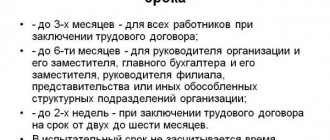A life support agreement entered into by an annuitant is sometimes contested by his heirs after his death. Often they are not aware that the annuity agreement was concluded during the lifetime of their relative.
After opening an inheritance and contacting government agencies, a notary or third parties, the heirs become aware that the apartment or house where the deceased lived no longer belongs to the testator, as they were alienated in favor of the rent payer.
What can the heirs do in this case and how can they challenge the annuity agreement? What are the procedural features of preparing a statement of claim to invalidate a rental agreement and resolving such a case in court, we will tell you in this article.
Challenging a rent agreement for an apartment and other real estate
The transaction is usually contested by the heirs filing a claim in court, where it is considered according to the rules of civil procedure (Civil Procedure Code of the Russian Federation).
When there are suspicions that a life annuity agreement could have been concluded as a result of fraudulent actions by the payer, the heirs can contact law enforcement agencies or the prosecutor's office with a statement.
However, it is not recommended to categorically accuse him of committing a crime. This will make it possible to avoid charges of knowingly false denunciation (Article 306 of the Criminal Code of the Russian Federation) if the audit does not reveal criminal actions.
What law governs
When considering the case in court, the norms of Chapter 33 of the Civil Code of the Russian Federation (rent and lifelong maintenance with dependents) will be affected. In addition, the immediate grounds for declaring a transaction invalid are specified in Articles 166–181 of the Civil Code of the Russian Federation.
The death of the annuity recipient is grounds for termination of obligations (Clause 1, Article 605 of the Civil Code of the Russian Federation). Therefore, relatives have no right to demand its termination after the death of the testator.
An exception is the case when, during his lifetime, the owner raised the issue of terminating obligations, but died before the court considered his claim for termination of the agreement and return of the real estate (clause 2 of Article 605 of the Civil Code of the Russian Federation).
In this case, his heirs (legal successors) can continue the case he started in court.
In all other situations, after the death of the testator, the successors may file a claim not for termination of the contract, but for declaring the transaction invalid (clause 73 of the Resolution of the Plenum of the Supreme Court of the Russian Federation dated May 29, 2012 No. 9).
Legal grounds for challenging rent
Grounds for challenging a transaction and declaring it invalid may be cases where the annuitant at the time of its completion:
- did not understand the significance of his actions (Article 177 of the Civil Code of the Russian Federation);
- was under the influence of a significant misconception (Article 178 of the Civil Code of the Russian Federation);
- was under the influence of deception, violence, threat or other unfavorable circumstances (Article 179 of the Civil Code of the Russian Federation).
Depending on the specific conditions of the agreement, there may be other grounds.
For example, if a deal is concluded:
- an incompetent annuitant (Article 171 of the Civil Code of the Russian Federation);
- without the intention of creating legal consequences corresponding to it (Part 1 of Article 170 of the Civil Code of the Russian Federation);
- in order to cover up another transaction (Part 2 of Article 170 of the Civil Code of the Russian Federation);
- in violation of the requirements of the law and other legal acts and the interests of third parties protected by law (clause 2 of article 168 of the Civil Code of the Russian Federation);
- and others.
How are costs reimbursed?
The courts separately stipulate the method of reimbursement of costs, and the decision on this matter is not always positive.
It depends on what the lessor's intentions were. If threats or blackmail, as well as other fraudulent methods, were used, then criminal liability may be applied to him, and he will not be able to count on compensation.
If there is an ambiguous situation, then the money is returned based on the clauses of the agreement. This document often states that if the rental contract is contested, a special penalty will be imposed on the payer.
Who can terminate a life annuity agreement
It all depends on the moment when the transaction is canceled: during the life of the annuitant or after his death.
Termination of an agreement, as a general rule, implies termination of obligations at the request of one of the parties (Articles 451, 452 of the Civil Code of the Russian Federation).
Termination of annuity during the life of the recipient
During the lifetime of the annuitant, he has the right to demand termination of the transaction in the event of a significant violation on the part of the annuity (Article 587, Article 599, paragraph 2 of Article 605 of the Civil Code of the Russian Federation).
Such violations may include:
- failure to provide the rentee with a place of residence suitable for living;
- necessary food and clothing;
- care required for health reasons;
- medicines and medical care;
- other violations of the contract, as a result of which the owner of the property is deprived of what he had the right to count on when concluding it (Part 2 of Article 450 of the Civil Code of the Russian Federation).
Before filing a claim, the former owner of the property (or his representatives) must send a demand to the other party (the rent payer) to terminate the transaction. And only after the expiration of the established period can you go to court with a claim to terminate the annuity agreement (Clause 2 of Article 452 of the Civil Code of the Russian Federation).
Is it possible to challenge the rent after the death of the owner?
Judicial practice allows this if, during his lifetime, the recipient of the annuity turned to the payer with a demand to terminate the contract, but died without waiting for the claim to be considered in court.
This approach was formulated in the Resolution of the Presidium of the Supreme Court of the Russian Federation dated January 10, 2001 No. 237 pv-2000 pr. The court recognized the participation of the legal successor of the annuity recipient in the trial after the death of the annuitant as legitimate.
The claim was filed by him during his lifetime, and its subject was a demand for the return of real estate due to a significant violation by the rent payer of its obligations.
Therefore, the court indicated that in the legal relationship for the return of real estate, succession is allowed.
How is a contract terminated during the owner’s lifetime?
Termination of such a rental agreement is usually required by the property owner himself, since the rent payer does not transfer him the required amounts of money or refuses to help in other ways specified in the official document.
Important! Each rent payer must keep different payment documents, which serve as confirmation that he has faithfully fulfilled his obligations under the agreement, so different statements of accounts, as well as documentation of postal orders or receipts, are submitted to the court.
Evidence in court can include various receipts and checks, which indicate that the rent payer actually helped the rent recipient by purchasing him various products or medicines.
About rental payments
When drawing up a rental agreement, much attention should be paid to the size and rules for transferring rental payments.
If there is any unclear information or conflicting information, this may become grounds for termination of the contract. It is not allowed for the monthly payment to be less than the cost of living at the time the transaction is concluded.
These payments must be paid separately from various social expenses. Failure to comply with the requirements for the transfer of these funds often becomes the reason for termination of the contract.
Resolution of the issue in court
Appealing to the court often becomes the basis for using unusual methods of resolving disagreements:
- the use of psychological and psychiatric examination makes it possible to determine whether the parties to the transaction were insane at the time of signing the contract;
- it may be revealed that the contract was drawn up with the help of intermediary firms, and in this case they can act in court as witnesses on the part of the defendant;
- Possible fraudulent schemes are identified, aimed at depriving the apartment owner of his property through unlawful actions.
Even during the life of the annuitant, it is possible to challenge the annuity agreement if there are compelling reasons for this.
How to invalidate a rental agreement? Watch in this video:
The procedure for invalidating a rental agreement
After receiving information about the existence of an annuity, it is advisable for the heirs to immediately collect the necessary information and evidence, draw up and submit a statement of claim to the court.
Promptness when filing a claim is important because courts often refuse to satisfy even fairly well-founded applications due to the heirs’ untimely application to the court (due to the missed statute of limitations).
Which court should I go to?
Since in claims of heirs, the following requirements are usually stated:
- on declaring the transaction invalid;
- recognition of the right to real estate;
- making entries in the Unified State Register of Rights to real estate in relation to the disputed residential area.
Then there is a dispute about the right to residential premises (Article 30 of the Code of Civil Procedure of the Russian Federation).
You can find out which district court (Article 24 of the Code of Civil Procedure of the Russian Federation) has jurisdiction over the address of the disputed real estate by contacting the court office (by phone or in person).
You can also independently obtain information on the website in the territorial jurisdiction section - about the streets over which the jurisdiction of the court extends.
Evidence and documents
The plaintiff must provide evidence of the existence in his dispute of the grounds provided for by law for recognizing the agreement for lifelong maintenance with dependents as invalid (Articles 177, 178 and 179 of the Civil Code of the Russian Federation and others).
Such evidence must indicate that the annuity recipient entered into a transaction under the following circumstances:
- Due to his age, state of health, illiteracy, he was not able to understand the meaning of his actions and manage them, although he was a capable person.
- Due to his age, state of health, and ignorance of the law, he was significantly mistaken regarding the legal nature of the annuity agreement, including misunderstanding the consequences of its conclusion. He did not understand that he would lose his right to own the home, and he had an incorrect idea of the scope of the other party’s obligations.
- Was under the influence of deception, violence, threats from third parties, or due to a combination of difficult circumstances was forced to enter into an agreement on extremely unfavorable terms (an enslaving deal), which the renter took advantage of.
Documents usually submitted in support of these circumstances are:
- medical documents - cards, certificates, extracts, other information from a psychoneurological, narcological dispensary, a conclusion on the establishment of disability;
- documents on the insufficient level of education of the testator;
- materials of inspections by competent authorities, administrative and criminal cases, sentences and court decisions;
- statements from the testator's bank account;
- information from the management company and resource supply organizations;
- certificates and letters from the administration.
During the consideration of the case, the plaintiff may request an examination (Article 79 of the Code of Civil Procedure of the Russian Federation) in order to obtain evidence in the form of conclusions of forensic psychiatric, psychological-psychiatric, forensic handwriting and other examinations.
Witness testimony can also be used as evidence.
There may also be evidence of concluding a transaction with significant violations of the law (clause 2 of Article 168 of the Civil Code of the Russian Federation), which lead to the nullity of the transaction.
State duty amount
When determining the amount of the duty, the value of the disputed property is taken into account (clause 1, clause 1, article 333.19 of the Tax Code of the Russian Federation, clause 2 and clause 9, part 1, article 91 of the Code of Civil Procedure of the Russian Federation). It cannot be lower than the inventory estimate.
The inventory value is usually several times less than the cadastral and market value, so it is more profitable to use it to calculate the duty.
For example, if the inventory value of an object is 200,000 rubles, the state duty will be 5,200 rubles. (property claim subject to assessment).
The plaintiff, in a statement of claim or in a separate petition attached to the claim, may ask the court to exempt him from paying the duty, or to reduce its amount, as well as to defer (in installments) its payment (Clause 2 of Article 333.20 of the Tax Code of the Russian Federation).
Also, the plaintiff may be exempt from paying state duty due to the availability of benefits (Article 333.35 and Article 333.36 of the Tax Code of the Russian Federation).
Contents of the claim
General requirements for the form and content of the claim are enshrined in Article 131 of the Code of Civil Procedure of the Russian Federation.
In relation to the dispute under consideration, the plaintiff, when drawing up a claim, must indicate:
- what is the violation of the rights and legitimate interests of the plaintiff - the heir’s lack of opportunity to register the property;
- what are the characteristics of the disputed real estate, including name, address, cadastral number, area, etc. (for its precise identification;
- how the value of the property and the corresponding claim price are determined and what it is;
- how and when the heir learned about the violation of his right - circumstances indicating that the statute of limitations has not been missed;
- who violated the rights of the heir (the renter and the new homeowners);
- what are the circumstances under which the plaintiff considers the contract voidable - the grounds for declaring the transaction invalid, provided for by law;
- what evidence confirms the existence of grounds for invalidity of the transaction - documents, references to witness testimony;
- what is the essence of the heir’s demands (to recognize the transaction as invalid, to recognize his right to the disputed housing, to make entries in the Unified State Register).
The general requirements for documents attached to the claim are enshrined in Article 132 of the Code of Civil Procedure of the Russian Federation.
Statement of claim for invalidation of a rent agreement
Grounds for challenge:
- One of the most common reasons why a court may terminate a contract is incorrect execution or inconsistency of data in it;
- This also includes the lack of a certificate from the notary who controlled the transaction or state registration in Rosreestr;
- Another important argument is the incapacity of the pensioner who signed the papers. This also concerns his adequacy and awareness of what is happening.
The court may order a medical examination or analyze the medical papers of the apartment owner, which relate to the period when the agreement was signed;
- Often such transactions are concluded with malicious intent, a desire to deceive the owner, etc.
Various forms of fraud can be proven in court through the testimony of witnesses and verification of how the new owner treated the old one.
Such cases rarely go to trial, but if there is irrefutable evidence that the rentee was deceived, then you can safely go to court;
- The rent can also be terminated if the payer simply does not pay the required money for the maintenance of the property owner.
The same applies to any forms of care that were agreed upon in the document.
In general, it is necessary to build on the contract and compliance with its clauses. If any of them is violated, even if it is not listed above, then this is enough to legally terminate the agreement between the parties.
Most often, people go to court because of untimely payments, delays, refusals to pay, etc. This is due to the fact that the rent is provided for a long period (at least while the first owner is alive), and during this time the level of rent for many may change life and income.
Although the cost of an apartment in this case turns out to be quite lower than a regular apartment, and this difference can be 2-3 times, however, violations with payments are frequent. This is also due to the fact that payment for treatment of older people can be agreed upon. Their condition may either improve or worsen, causing the costs and the rent payer to change.
Rent and lifelong maintenance: 3 examples from judicial practice
Decisions in favor of the heirs are made by the courts only in cases where the grounds for the invalidity of the transaction are indisputably proven. Of course, annuity and lifelong maintenance are one of the complex categories of litigation.
Judges are also forced to take into account the interests of bona fide renters, and, as a rule, strive to leave transactions with them in force. Therefore, insufficient validity of the claim may lead to its refusal to satisfy it.
Judicial practice on annuity agreements is extensive; we will focus on three cases.
Example 1. The property owner did not understand the meaning of his actions
https://sudact.ru/regular/doc/YcPUCw9FxcLP/
In a case considered by the Ruzsky District Court of the Moscow Region, the heir under the will made demands for invalidation of the lifelong maintenance agreement with dependents, cancellation of the entry in the Unified State Register of Real Estate about the lessor's ownership of the disputed apartment, and recognition of the heir's ownership of the apartment.
It was established by the expert opinion carried out on the forensic examination case.
The depth of psycho-organic changes in the testator after a stroke was irreversible and was so pronounced that it deprived him of the ability to understand the meaning of his actions and manage them during the period of approval of the terms of the life support transaction (Article 177 of the Civil Code of the Russian Federation).
The court satisfied the heir's claims.
Example 2 The testator, when concluding a transaction, was mistaken about its nature
https://sudact.ru/regular/doc/63nCL8fZo8gj/
In a case considered by the Tavdinsky District Court of the Sverdlovsk Region, the heir filed a demand to invalidate a real estate donation transaction, which implied the lifelong maintenance of the testator with dependents.
The court took into account that the testator was not personally present at the conclusion of the donation agreement by his representative under the power of attorney, did not sign anything, and no evidence was presented that he had read the text of the deed of gift.
Therefore, the court concluded that the testator did not fully understand what the transaction for which he was given a power of attorney was aimed at.
In this regard, the claim was satisfied with reference to paragraph 3 of part 2 of Article 178 of the Civil Code of the Russian Federation (misconception of the party to the transaction regarding its nature).
Example 3 Lack of grounds to satisfy the requirements
https://sudact.ru/regular/doc/HReszMfMFYZ6/
In a case considered by the Vidnovsky City Court of the Moscow Region, the heir under the will made demands for invalidation of the lifelong maintenance agreement with dependents, cancellation of the registration record, recognition of the disputed apartment as hereditary property, and recognition of the heir's ownership of the apartment.
The court did not find any grounds for invalidity of the transaction provided for in Articles 177, 178 and 179 of the Civil Code of the Russian Federation.
The case materials did not contain objective and reliable evidence confirming that the testator was under the influence of delusion, violence or threat.
He also entered into a rental agreement on extremely unfavorable terms for him, due to a confluence of difficult circumstances, which the other party took advantage of (a enslaving deal).
There is no evidence of a defect in the will of the testator due to being in a state at the time of the transaction in which he was not able to understand the meaning of his actions or direct them.
The heir's claims were left unsatisfied.
Subtleties and nuances of litigation
Invalidating an annuity agreement with lifelong maintenance and dependency after the death of the annuitant is not a simple matter (claims are rarely satisfied), but possible, if there are appropriate grounds and evidence.
Let's look at some more important aspects of challenging annuity transactions with lifelong maintenance and give recommendations to the participants in the trial.
The importance of notarial acts
In accordance with Articles 43 and 54 of the “Fundamentals of the Legislation of the Russian Federation on Notaries,” when certifying a transaction, a notary checks the legal capacity of the citizen who applied for the certificate.
It is necessary to establish his will, explain to him the meaning, significance and consequences of this notarial act, and check the transaction for compliance with the requirements of the law.
Therefore, sometimes it is also necessary to prove the presence of an error on the part of the notary who certified the annuity agreement.
Please note the limitation period
The plaintiff is advised not to delay filing a statement of claim in order to avoid denial of the claim due to missing the statute of limitations (Parts 1 and 2 of Article 199 of the Civil Code of the Russian Federation).
If a significant amount of time has passed since the opening of the inheritance, it is possible that, simultaneously with the claim, you will have to file an application to restore the missed procedural deadline for going to court (Article 112 of the Code of Civil Procedure of the Russian Federation).
It indicates valid reasons that prevented filing a claim at an earlier date.
Proving and requesting evidence
Much of the evidence will be inaccessible to the plaintiff, since it constitutes medical confidentiality, will confidentiality, investigative confidentiality and other information protected by law, which is issued only at the request of the judge in connection with the case before him.
Therefore, the plaintiff in the statement of claim or later in the court hearing may file a motion to obtain evidence. It must indicate what documents and from whom it is necessary to request, and why this evidence cannot be obtained by the plaintiff independently (Article 57 of the Code of Civil Procedure of the Russian Federation).
We pay attention to judicial practice
It is recommended to become more familiar with court decisions in similar cases. This will make it possible to determine what arguments support the circumstances that the plaintiff chose as the basis for declaring the transaction invalid.
Only by proving the invalidity of the contract can one expect the claim to be satisfied and the real estate to be returned to the estate.










